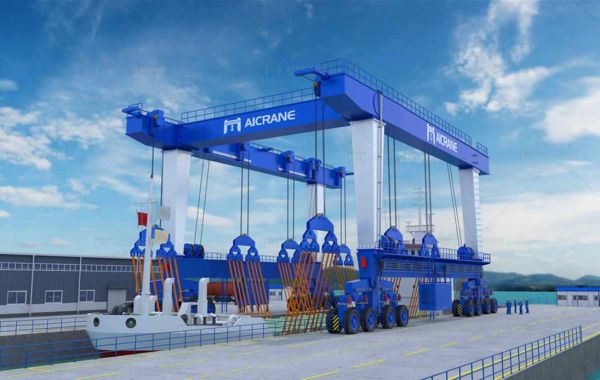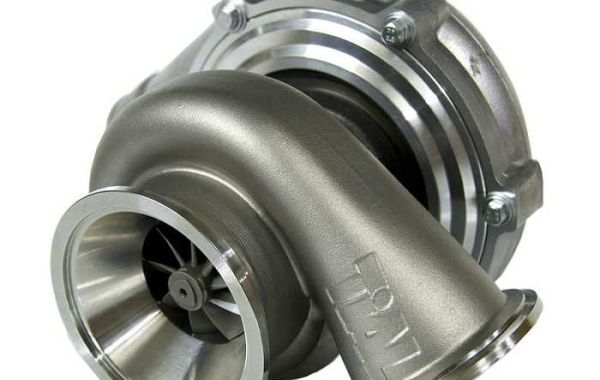A travel lift is a large, mobile crane-like machine designed to lift, move, and position heavy objects, particularly boats, machinery, and tanks. In the context of a fish farm, travel lifts are invaluable for moving and maintaining large equipment, vehicles, and even structures used in aquaculture operations. They help streamline operations, improve safety standards, and facilitate efficient maintenance. Let’s explore in detail why a travel lift should be used in a fish farm.

Efficient Handling of Equipment and Infrastructure
A fish farm relies on various types of equipment and infrastructure to ensure the optimal growth of the fish and the maintenance of the aquatic environment. This includes tanks, filtration systems, aeration equipment, and feeding systems. A travel lift provides the necessary lifting power to move heavy equipment safely and efficiently within the farm. Without a travel lift, handling these large and often awkwardly shaped items can become challenging, time-consuming, and even dangerous.
In addition, a travel lift can be used to reposition tanks or infrastructure during routine maintenance or upgrades. For instance, when replacing a tank liner, adjusting the positioning of aeration systems, or installing new equipment, the travel lift helps speed up the process, minimizing downtime and reducing the physical labor required.
Improved Worker Safety
Safety is always a top priority on a fish farm. Handling heavy equipment and materials manually can put workers at risk of injury, such as strains, sprains, and other musculoskeletal problems. A travel lift boat gantry crane helps mitigate these risks by providing a mechanical solution for lifting and moving large objects. This not only reduces the physical strain on workers but also ensures that equipment is handled with precision, lowering the likelihood of accidents or damage.
For example, when moving large feed tanks, tanks for breeding fish, or maintenance materials, a travel lift allows the operator to perform the task without the need for multiple workers or makeshift lifting devices. The travel lift’s controls can be operated from a safe distance, reducing the chance of workers being exposed to potential hazards.
Better Control and Precision
When dealing with valuable and delicate equipment in a fish farm, control and precision are essential. For instance, fish tanks, which often contain live fish, must be handled with care to avoid any damage to the tank structure or disruption to the aquatic life inside. A travel lift allows for precise control of the lifting and movement of tanks, enabling the operator to safely position them without risk of toppling or shifting.
In addition, when moving or relocating fish tanks, the travel lift can gently place the tanks down in their new location, maintaining stability and reducing the risk of disturbing the water level or the fish inside. This level of control is difficult to achieve with human labor alone or with other mechanical lifting devices.
Versatile Application for Various Farm Tasks
The versatility of a travel lift is one of its most significant advantages for a fish farm. While its primary role may be in lifting and moving large objects, its functions can extend beyond that. In aquaculture, travel lifts are used for a variety of purposes, such as:
Maintenance of Floating Structures: In many fish farms, floating cages are used to raise fish in open waters. Travel lifts can be used to lift and transport these floating structures, making repairs or maintenance easier. For example, when a cage needs to be cleaned or relocated, a travel lift can lift it from the water, allowing for thorough maintenance or repair work to be done.
Boat Handling: Many fish farms use boats for transporting supplies, monitoring the farm, or handling fish. A travel lift is ideal for placing boats in and out of the water with ease, ensuring they are safely stored on land when not in use.
Transporting Feed and Supplies: The travel lift can be used to move heavy bags or containers of fish feed, especially if the farm’s layout includes multiple levels or areas that require the transportation of materials over distances.
Reduction of Labor Costs
While a travel lift requires an initial investment, its usage can significantly reduce labor costs in the long term. Moving and maintaining large equipment, boats, and infrastructure without the aid of a travel lift requires a significant number of workers, and the process can be slow and inefficient. With a travel lift, fewer workers are needed, and tasks that would otherwise take hours or days can be completed in a fraction of the time.
Moreover, a travel lift allows workers to focus on other tasks that require specialized skills or attention, such as monitoring fish health, managing water quality, or ensuring proper feeding schedules. In this way, a travel lift contributes to operational efficiency by minimizing the need for manual labor and reducing overall manpower costs.
Minimizing Damage to Equipment
Handling large or heavy equipment without the proper lifting tools can often result in accidental damage. A travel lift minimizes this risk by offering a stable, controlled lifting mechanism that ensures equipment is moved without the risk of scratches, dents, or structural damage. Whether it's fish tanks, pumps, or mechanical systems, using a travel lift ensures that your equipment remains intact and operates effectively for years to come.
Additionally, the travel lift can help protect the fish farm's infrastructure. Moving large tanks or filtration systems improperly can cause leaks, cracks, or malfunctions, leading to costly repairs or even system failures. With the precise operation of a travel lift, equipment is moved gently and securely, preserving both the integrity of the infrastructure and the fish within it.
Enhanced Farm Expansion and Scalability
As a fish farm grows, so does the need for equipment and infrastructure. A travel lift is particularly useful in accommodating such growth. If the farm needs to add new tanks, relocate existing equipment, or adjust the layout to accommodate new operations, a travel lift simplifies these tasks and facilitates smooth transitions.
In particular, expanding a fish farm by adding new tanks or cages for fish may require adjustments in how equipment is organized or maintained. The ability to move large objects and structures with a travel lift makes it easier to redesign or upgrade the farm, allowing for greater flexibility in accommodating expansion without significant delays or complications.
Time Efficiency
Time is a valuable resource on a fish farm, where regular tasks such as feeding, cleaning, and monitoring water quality must be done on a tight schedule. Using a travel lift helps save time by streamlining processes like the transportation of materials and the maintenance of infrastructure. Tasks that would traditionally require significant amounts of time, like relocating tanks, cleaning cages, or loading heavy equipment, can now be completed more quickly, allowing workers to focus on other essential tasks.
The increased efficiency in lifting and moving equipment also means that the farm can operate at full capacity without unnecessary interruptions, ultimately improving overall productivity and profitability.
Incorporating a travel lift into a fish farm offers numerous advantages, from improving safety and precision to enhancing operational efficiency and reducing labor costs. By providing a powerful solution for handling heavy equipment, relocating infrastructure, and conducting routine maintenance, a travel lift ensures that the fish farm can run smoothly and effectively. Moreover, it enhances the farm's ability to expand and adapt to new demands, making it an indispensable tool for both large and small-scale aquaculture operations.
Ultimately, investing in a travel lift can pay dividends in the long term by improving the safety of workers, reducing damage to valuable equipment, and ensuring that the farm can continue to grow and operate without hindrance. Whether it's handling floating structures, boats, or supplies, the travel lift is an essential piece of equipment for any modern fish farm looking to optimize productivity and sustainability.








